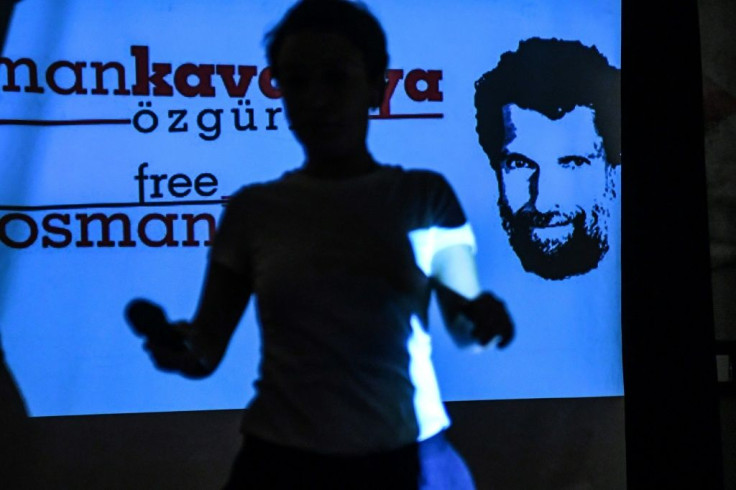Turkish Court Rules Jailing Of Top Rights Defender Lawful
Turkey's Constitutional Court on Tuesday rejected leading rights defender Osman Kavala's appeal for an immediate release, ruling that his detention for over three years without a conviction was lawful.
A respected figure in international circles, the 63-year-old's case is seen as a bellwether on the state of political freedoms under Turkish President Tayyip Erdogan's rule, which has seen many of his opponents jailed on terror-related and other charges.
Kavala has remained in prison despite being acquitted in February in connection with 2013 anti-government protests.
He was immediately re-arrested and jailed in February on fresh charges of espionage and involvement in a failed 2016 coup against Erdogan.
The next hearing is scheduled for February 5 of next year.
The Constitutional Court's general assembly ruled by an 8-7 margin that Kavala's detention did not violate his rights to liberty and security, a court spokesman told AFP.
The formal reasoning for the ruling is expected to be published in one to two months.
The Parisian-born businessman was a founding member of philanthropist George Soros' Open Society Foundation in Turkey and headed Anadolu Kultur -- a group that promoted cross-cultural ties through the arts at the time of his arrest.
In a court appearance this month, Kavala rejected the charges, telling the presiding judge: "I have opposed military coups my entire life and have criticised the army's interference in politics."

Kavala would be sentenced to life in prison if convicted of trying to overthrow the constitutional order. The espionage charge carries an additional 20 years in jail.
The European Court of Human Rights first called for Kavala's "immediate release" in December 2019.
Erdogan branded Kavala the "red Soros of Turkey" a few days after he was first detained upon landing in an Istanbul airport from Gaziantep in the southeast in October 2017.
In a bid to repair Turkey's global international image in the middle of a deep economic downturn, Erdogan last month pledged to push through judicial reforms that secured broader independence of the courts.
But he also took personal aim at Kavala, saying he was responsible for the 2013 protests -- even after being cleared of involvement in court.
"We can never be with financiers of Gezi events," Erdogan said, referring to demonstrations against plans to demolish a park in the heart of Istanbul that snowballed into nationwide protests.
"We can never be with Kavalas," Erdogan said.
US academic Henri Barkey is being tried in absentia alongside Kavala in the new trial.
The accusations against Barkey stem from a conference he organised about Iran on an island off Istanbul at the time of the 2016 coup attempt.
The charge sheet alleges Barkey used the event as cover to coordinate the putsch with Kavala.
Barkey told AFP this month that the charges against him were "a travesty of the first order".
© Copyright AFP {{Year}}. All rights reserved.





















